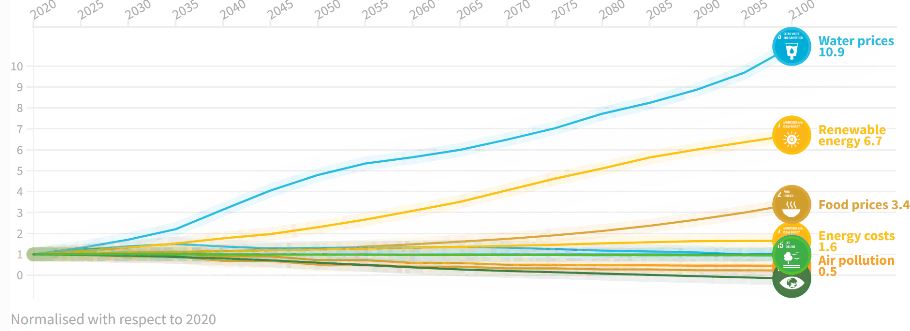The Sustainable Development Goals on the road to Paris

A recent paper published in Global Environmental Change analysed the long-term impacts of climate policies on the UN Sustainable Development Goals (SDGs) and concluded the need to align them with the Paris Agreement in order to keep the global average temperature below 2°C.
The article “Assessing synergies and trade-offs of diverging Paris-compliant mitigation strategies with long-term SDG objectives” was led by BC3 researcher Jorge Moreno, and co-authored by BC3 researchers Dirk-Jan Van de Ven, Jon Sampedro and Mikel Gonzalez-Eguino, together with Ajay Gambhir, from the Grantham Institute for Climate Change and Jem Woods from the Centre for Environmental Policy of the Imperial College London.

The study analysed the impacts on the SDGs of four different scenarios compatible with the Paris Agreement. These scenarios include combinations of large-scale deployment of solar and wind energy facilities, reforestation strategies, carbon capture and storage technologies, energy crops and behavioural changes.
- Bioenergy & Capture: The world relies on bioenergy and technologies to remove carbon from the atmosphere. This scenario may lead to increased water use for bio-crops, increased water stress and higher water prices.
- Forest & Fossils: The world relies on afforestation and large-scale deployment of carbon removal technologies. This strategy can lead to competition for land, increasing water and food prices.
- Electrification & Conservation: A scenario based on rapid electrification, large-scale solar and wind deployment and limited bioenergy implies higher carbon prices to encourage renewables, which would, in turn, increase fertiliser costs and therefore food prices.
- Lesser & Greener: Encouraging people to adopt more sustainable behaviours in their diets, transport choices and consumption patterns brings only moderate increases in water and food prices.
Results suggest that if mitigation depends largely on supply-side solutions, more natural resources are required, which may negatively interact with other elements of the SDG Agenda such as food and water prices. By promoting sustainable lifestyles, these impacts can be reduced and a just transition can be achieved by ensuring that vulnerable populations have access to water and food supplies.
“It is important to support environmental policies in analyses such as this one to understand long-term human-earth system interactions. They incorporate a holistic vision and allow to assess the impacts of policies in advance.” Jorge Moreno, BC3 researcher
“Climate change mitigation pathways can take very different forms and depending on the strategy, more or less effort can be assigned to certain sectors. Since there is a high degree of path-dependency in mitigation, it is crucial to evaluate the co-benefits or adverse side-effects of such long-term mitigation strategies upfront.” Dirk-Jan van de Ven, BC3 researcher
